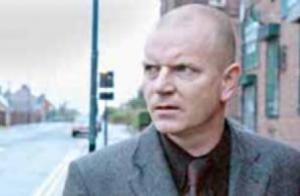I’m a young (ish) woman who was arrested as part of an investigation into the wrong doings in offices I never worked in, during a time I wasn’t there.
That made me good enough to be the ‘bit different’ panelist at City University’s Journalism in the Dock event this week. This meant two things; a freebie to London and an excuse to buy a new top and pair of shoes.
So there was I, doing my best ‘I’m clever’ voice while Brian Cathcart and my old boss Neil Wallis went hammer and tong about press freedom and the results of Leveson.
Everyone on the panel (bar me) was a middle-aged, middle class man who was, or had been, a general rather than a foot solider in newspapers.
Which is representative of the whole sorry mess really. One bunch of middle class and middle-aged men are really annoyed that another bunch of middle class and middle-aged men found out they’d been naughty and are demanding that a third bunch of middle class and middle-aged men do something about it.
Meanwhile it is the often not so middle class or middle-aged reporters in the regions who are really paying the price.
Personally, I’m far more concerned police officers who have never taken a bribe are being arrested than any of Leveson’s proposals. He’s getting the blame for a whole set of draconian changes which will ensure that never again will a regional crime reporter in a grubby coat will prop up the bar in a police club.
This will undoubtedly not only lead to fewer crimes being detected but also make regional papers even more unlikely to flog enough papers to keep going.
It made me think of my old pal Pat Lavelle – my first News Ed- who got me my first job after works experience and who I last saw a couple of months before his death two years ago when he took me out for lunch. He died of the disease of the hack; too much coffee and too many fags.
If it hadn’t been for the relationship Pat built with detectives at West Yorkshire Police and his continuous pressure on them to DNA test the letters sent by Wearside Jack – the Yorkshire Ripper Hoaxer – John Humble would not have been found.
He was a brilliant local news hound who spent hours immersed in investigations, working his contacts in both the police and the criminal underworld. And in that he was one of the last of his kind.
Local newspapers once depended on their relationships with public officials. Reporters began every morning doing “a round of calls” – ringing every duty inspector and fire station in their area – and going through the overnight logs. That’s how they got stories from their patch long before the nationals and the television. And that’s one of the reasons local people bought them.
Now they are reliant on press officers who often think their job is to stop reporters finding out what is happening and feed them yarns about cleaning up graffiti and lower crime stats.
It also makes it more difficult for young reporters to pique the interest of Fleet Street by getting a good line on a news story that’s made the nationals, like I did almost a decade ago.
And these foot soldiers in the regionals didn’t even get a say in all this. Leveson wheeled out a selection of London’s great and good while in places like Ipswich and Liverpool and Glasgow and Sunderland local reporters plodded on, trying to make a difference in an increasingly impossible climate, without even the ability to speak to their local cops.
In London people are now discussing ways and means to make their jobs even more difficult.
And when they succeed in stopping any reporter speaking to any public official without the nod from the Great Press God in HQ, they are also ensuring there will be no more Pat Lavelles. No more local newspaper hacks who use their contacts in public office to build brilliant investigations which matter to local people.
And that – for ordinary people all over this country- is the real travesty of the changes to press freedom. The Sun will continue on, with the lawyers and the money to fight their corner. Local newspapers may not have that chance.

Brilliant. That’s just how it is.
Pingback: Journalism workflow at the outset of the digital revolution | Mused News